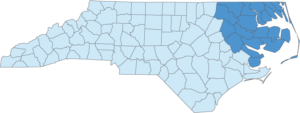- Make a difference: Public health administrators can make a real difference in the lives of people by helping to improve the health of populations. They can do this by developing and implementing public health programs and policies, managing public health organizations, and ensuring that public health resources are used effectively.
- Variety of career options: There are many different career options available to public health administrators. They can work in health departments, government agencies at a local, state, and national level, non-profit organizations, private businesses, and consulting firms. They can also specialize in a particular area of public health administration, such as program planning, financial management, or health policy.
- Education Pathway: In order to serve in an administrative role in public health one would need a high school diploma, and an undergraduate degree from an accredited University. Most public health administrators have bachelor’s degrees in fields related to health sciences, or policy and administration. There is not a one shoe fits all when it comes to undergraduate programs that is solely appropriate for this career pathway, since most administrators start in one particular aspect of public health before moving to an administrative role. Most administrative roles in public health require a master’s degree. Common applicable master’s degree programs for this career field are Masters of Public Health (MPH), Master of Public Administration (MPA), or a master’s degree in another public health discipline. Those with a medical doctorate can also serve in the role of a Public Health Director.
- Opportunities for growth and advancement: With the right skills and experience, public health administrators can move into leadership positions or specialize in a particular area of public health administration.
- Work-life balance: Public health administrators typically work regular hours, with some overtime required. This can be a good option for people who want a good work-life balance.

“My first introduction to the workforce involved assisting with community outreach programs in my small, rural hometown to mitigate identified disparities. It was through this exposure that I developed a passion for providing resources to underserved populations and addressing social determinants of health for optimal well-being. My culture and community have shaped who I am today, so I am thankful to be able to give back to it through the many facets that is public health.”
Cheyenna, Quality Assurance Specialist II
Here are some of the tasks that public health administrators do:
- Develop and implement public health programs and policies.
- Ensure that public health resources are used effectively.
- Managerial/supervision duties of staff and the organization as a whole.
- Advocate for public health needs and policies in the community, as well as at the state and national level
- Management of budgetary and financial resources
- Collaboration with local and state partners
- Develop and implement programs based on community needs and funding.
If you are interested in a career that combines management, leadership, and public health, then this may be a good fit for you. It is a rewarding career that allows you to make a real difference in the lives of people.
Here are some of the skills that are essential for public health administrators:
- Strong leadership and management skills
- Excellent communication and interpersonal skills
- Ability to work independently and as part of a team
- Knowledge of public health principles and practices
- Knowledge of management and leadership principles
- Strong financial management skills
- Strong grant writing skills
- Ability to engage the public and community
- Strong problem solving skills



